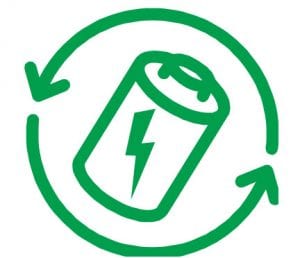Battery technology breakthrough made by NTU Singapore scientists
October 21, 2014A battery has been developed that can recharge up to 70% in just two minutes.
The new battery technology was created by scientists from Nanyang Technological University (NTU Singapore) and in addition to having the ability to recharge a massive percentage in such a short time it also has a longer lifespan than other batteries, lasting more than 20 years.
These new batteries could have a hugely positive impact on the electric vehicles industry.
Although there is no question that this technology is likely to have a broad scale impact on many industries, one of the industries that is likely to benefit the most from it is electric vehicles (EVs), because vehicles powered by electricity presently rely on batteries with limited lifespan and long recharge times that can take more than four hours.
This new battery developed by the NTU Singapore scientists is the next generation of lithium ion batteries. With it, EVs will no longer require frequent battery replacements, as the new technology will be able to handle over 10,000 charging cycles, which is 20 times more than the present 500 cycles of current batteries. In addition, the new battery will allow EVs to charge at a rate that is 20 times faster than present tech.
The battery technology features a new gel material made from titanium dioxide.
 The scientists use the titanium dioxide-based gel material in place of the traditional graphite that is utilized for the anode in lithium-ion batteries. Titanium dioxide is an inexpensive, safe and abundant material that is found in soil and is often used in sunscreen products to help absorb UV rays and also as a food additive.
The scientists use the titanium dioxide-based gel material in place of the traditional graphite that is utilized for the anode in lithium-ion batteries. Titanium dioxide is an inexpensive, safe and abundant material that is found in soil and is often used in sunscreen products to help absorb UV rays and also as a food additive.
NTU Singapore devised a simple method to transform titanium dioxide particles into mini nanotubes. To understand how tiny these nanotubes are, compared to the diameter of a single strand of human hair they are 1,000 times thinner. It is the nanostructure that speeds up the chemical reactions that occur within the new battery and this is what enables it to provide superfast charging.
The technology, which was invented by Associate Professor Chen Xiadong, from the School of Material Science and Engineering at NTU Singapore, said that “With our nanotechnology, electric cars would be able to increase their range dramatically with just five minutes of charging, which is on par with the time needed to pump petrol for current cars.” Professor Chen also said that since their “batteries last ten times longer than the current generation of lithium-ion batteries” it means waste that is generated by disposed batteries can be drastically reduced. Additionally, it saves EV drivers the cost of a battery replacement, which can cost more than US$5,000 each.
The patented battery technology has already generated interest and Professor Chen’s research team intends to apply for a Proof-of-Concept grant to build a large-scale prototype.

 With over 15 years of reporting hydrogen news, we are your premier source for the latest updates and insights in hydrogen and renewable energy.
With over 15 years of reporting hydrogen news, we are your premier source for the latest updates and insights in hydrogen and renewable energy.
What does 70% in two minutes mean?
Let’s calculate with the Tesla battery 80kWh capacity,
filling up 70% correlates to 56 kWh in two minutes.
Ergo you need a electrical power source of 56 times 30 kW.
1.68 MW for one single vehicle.